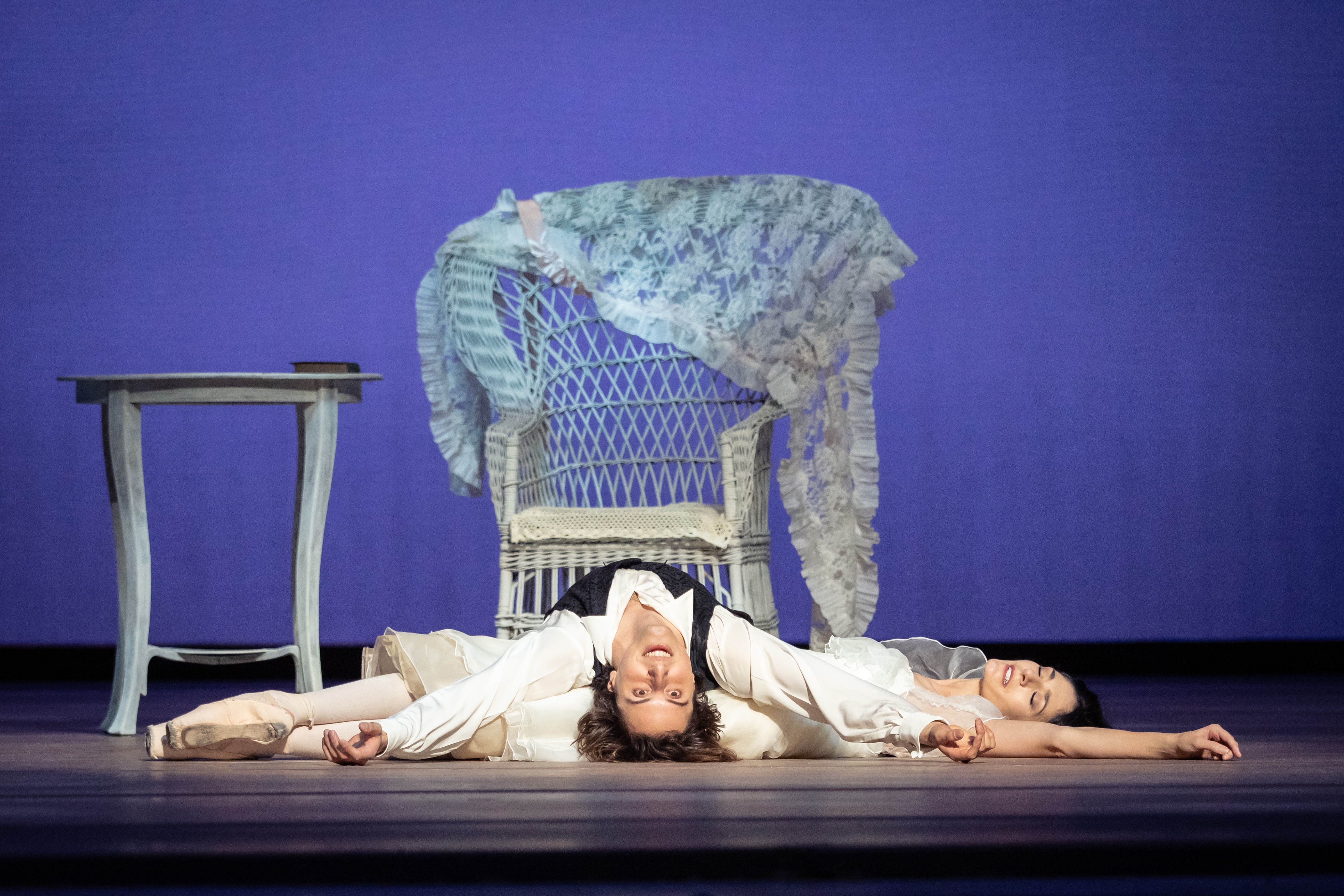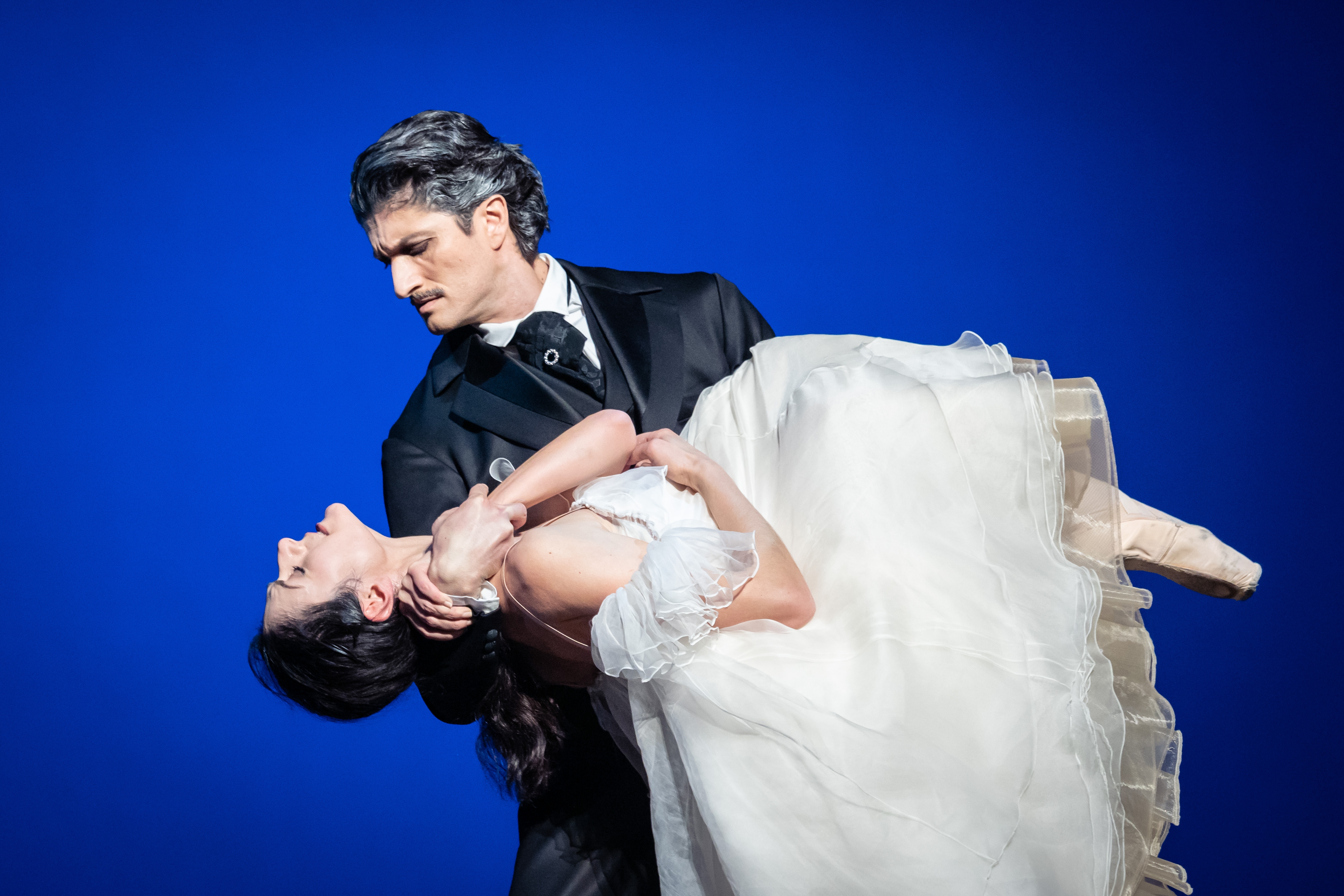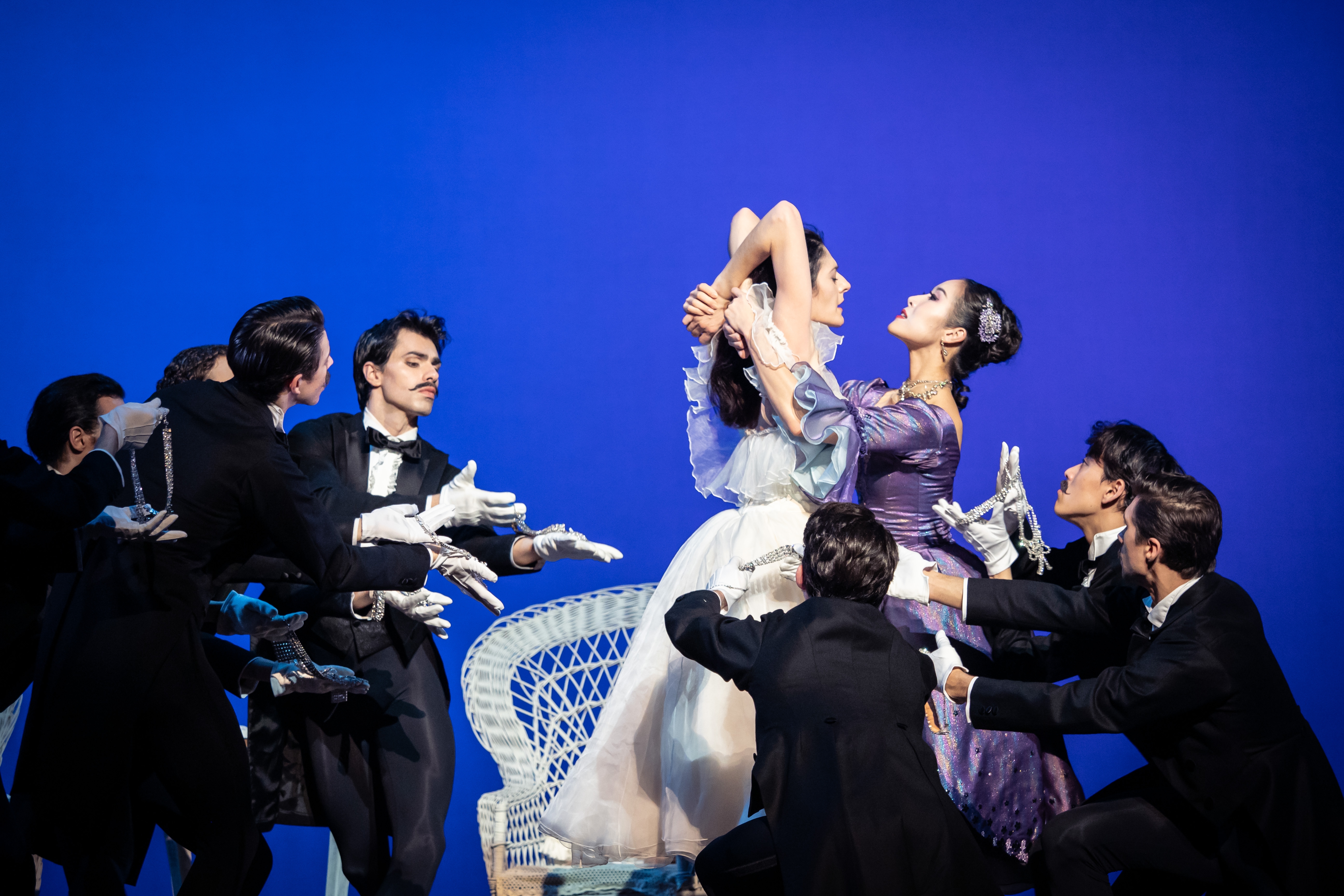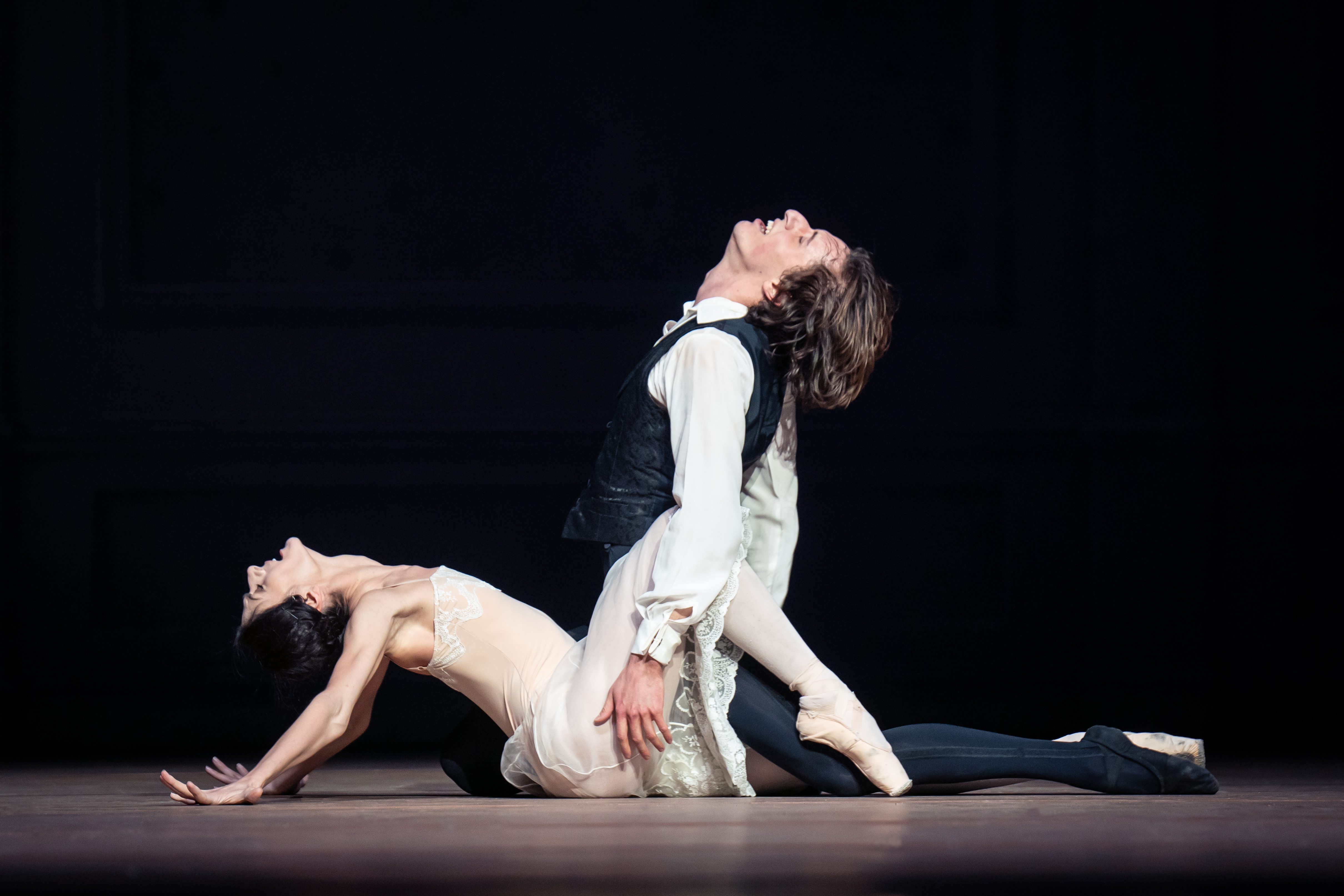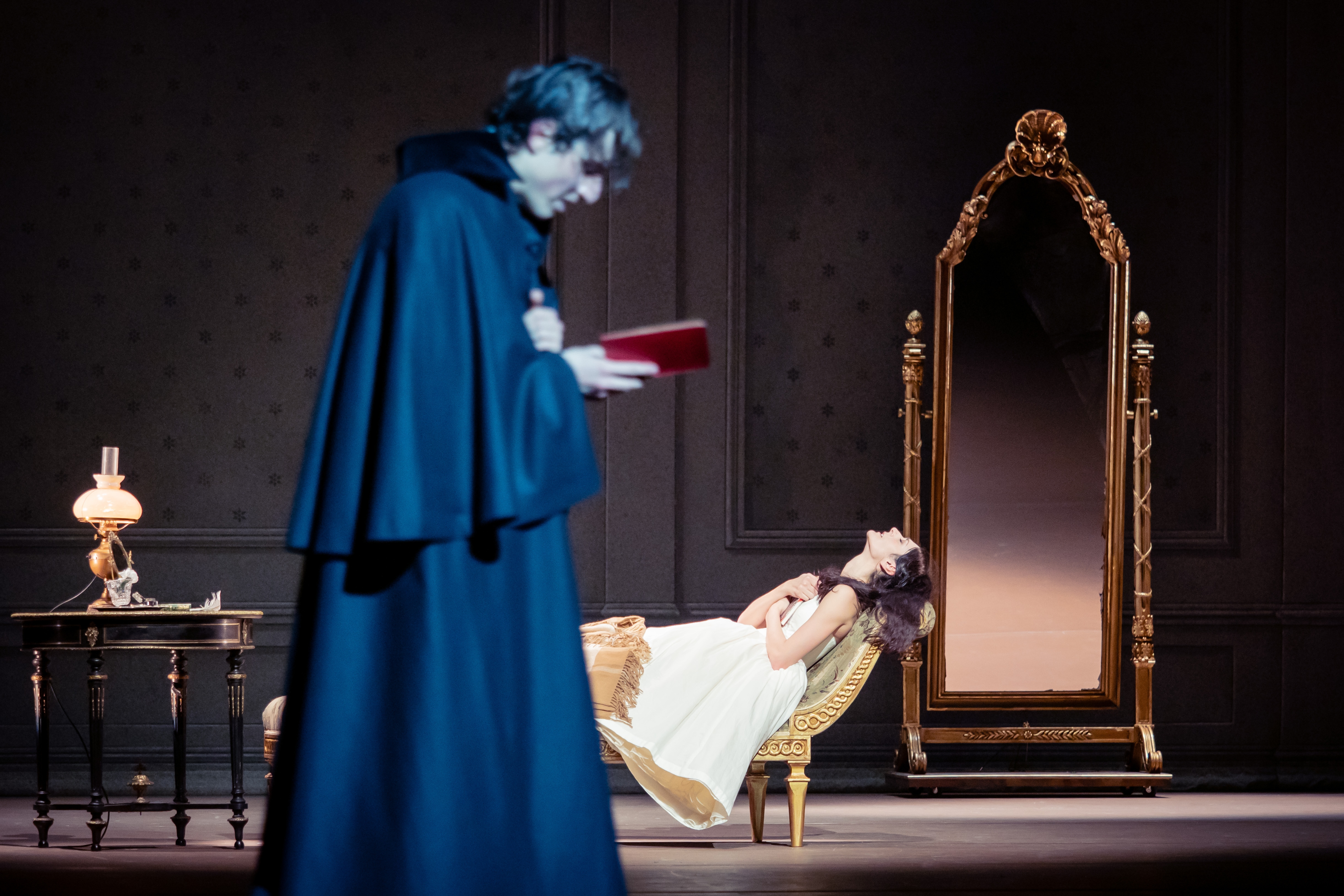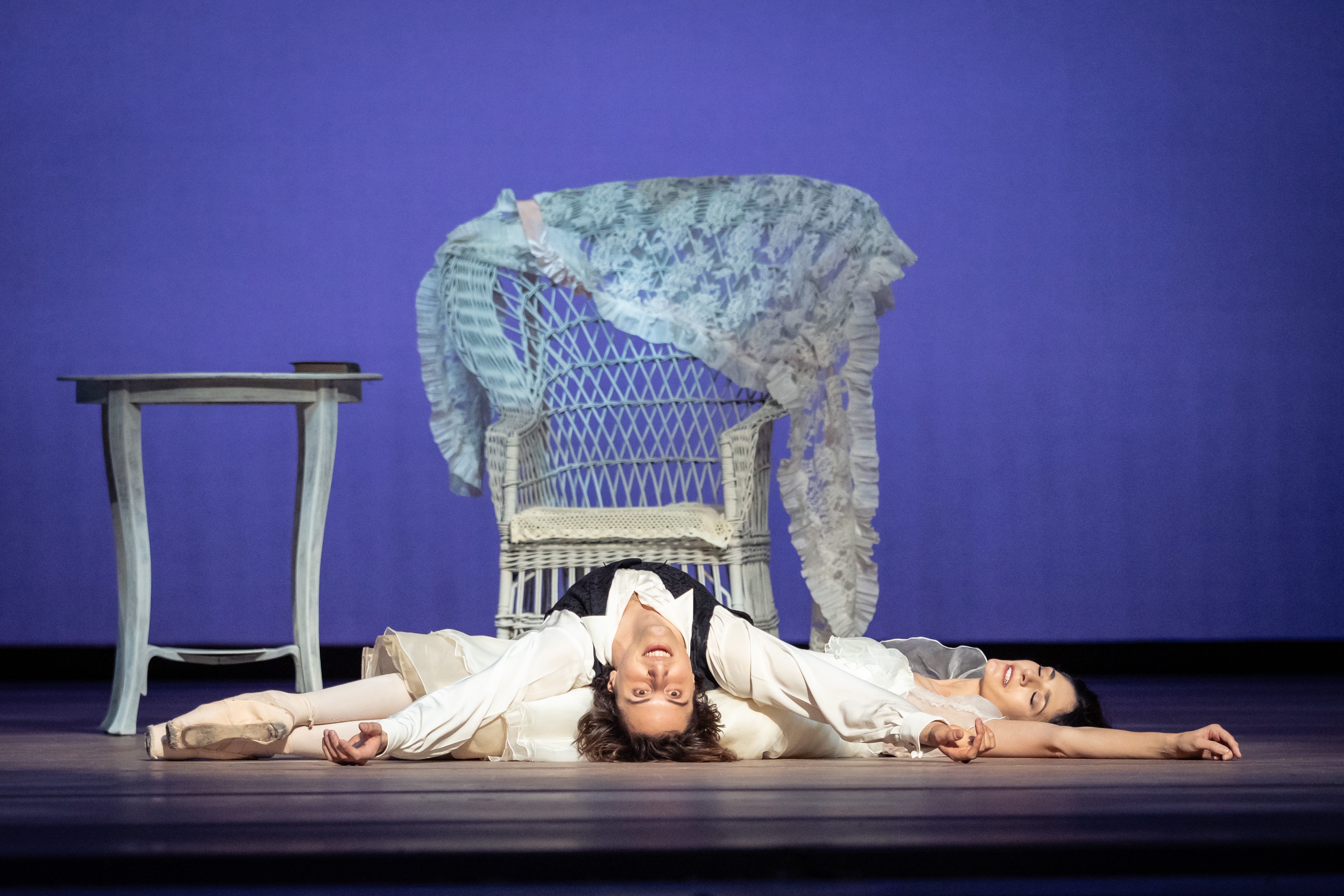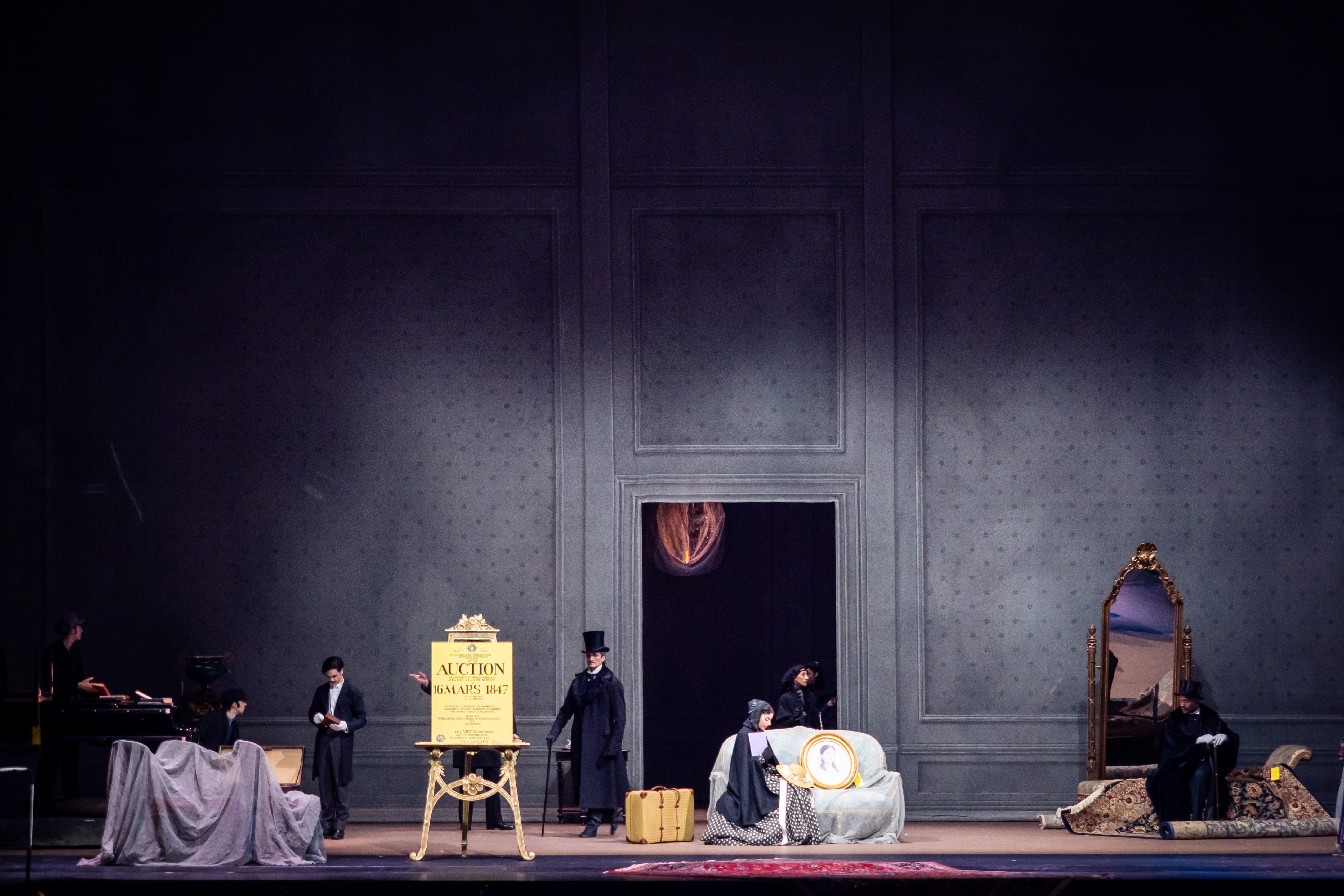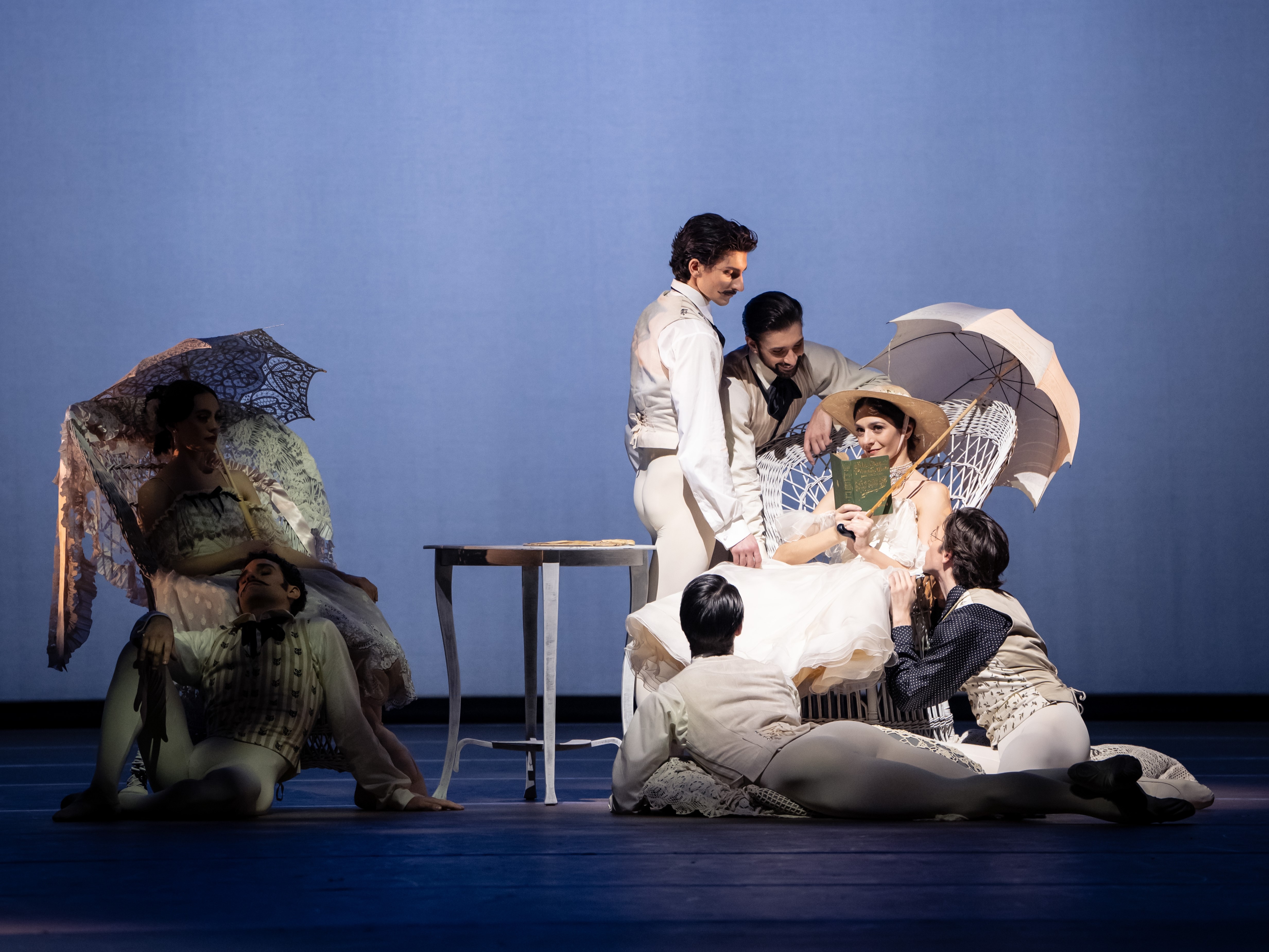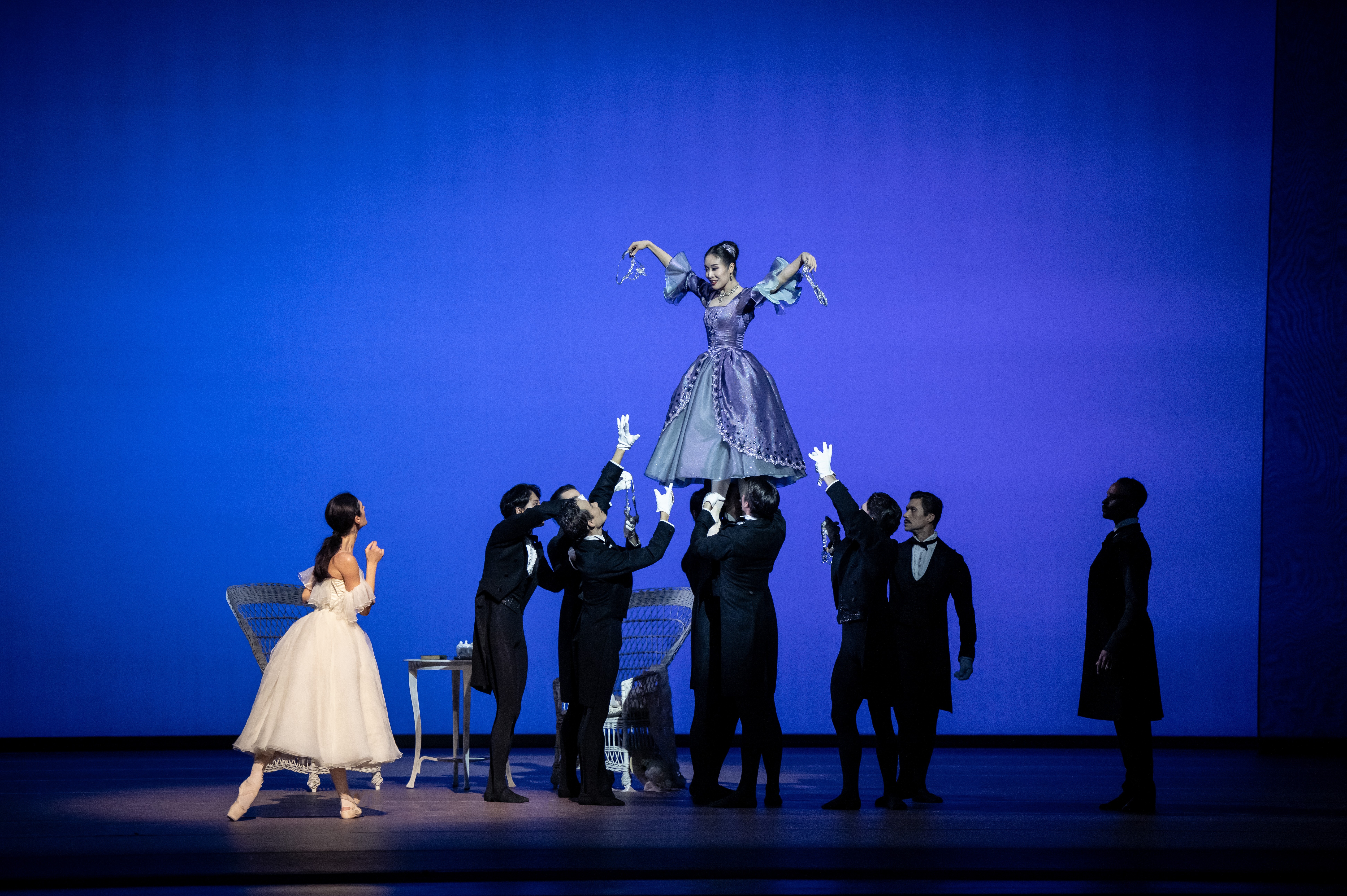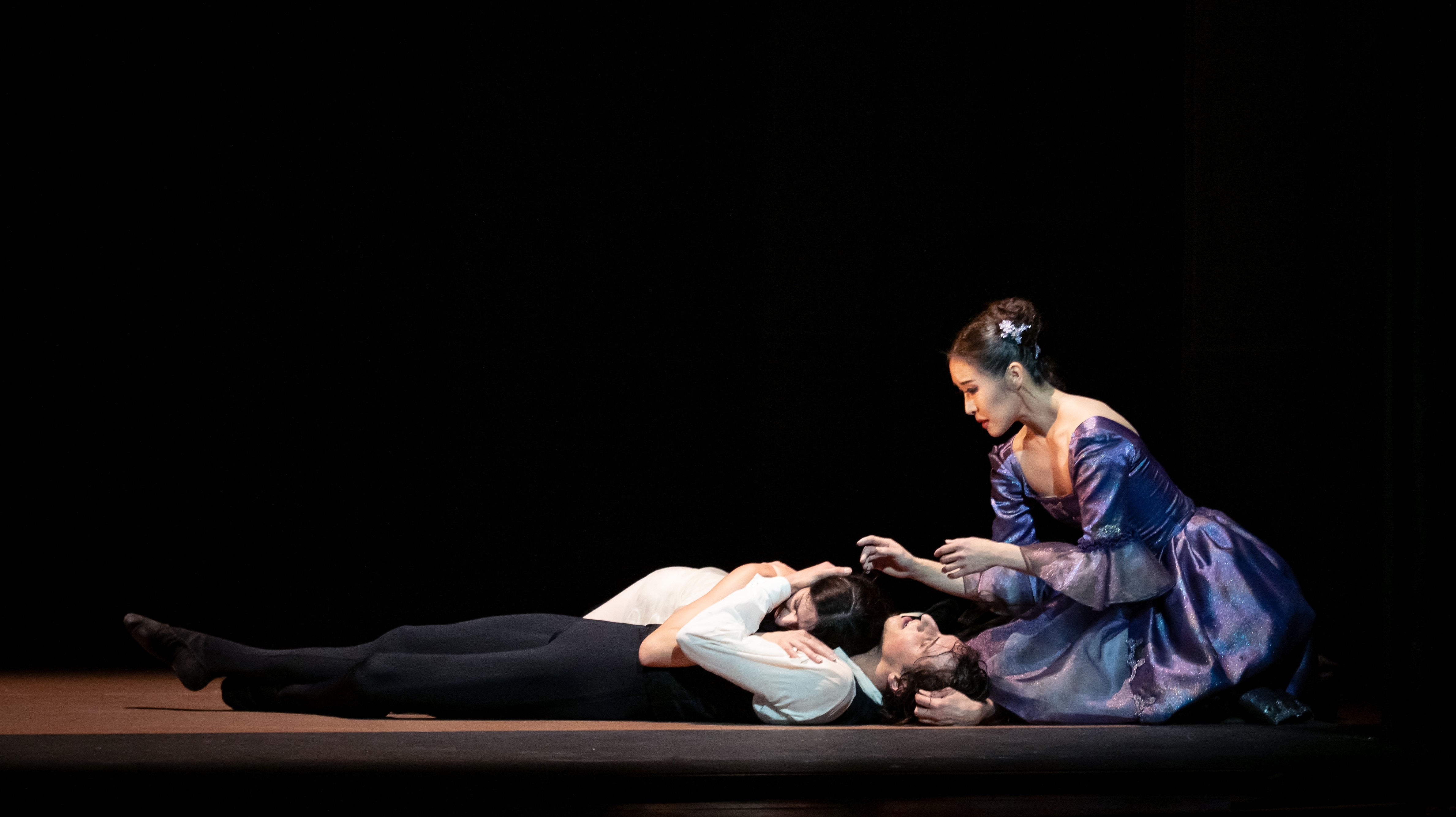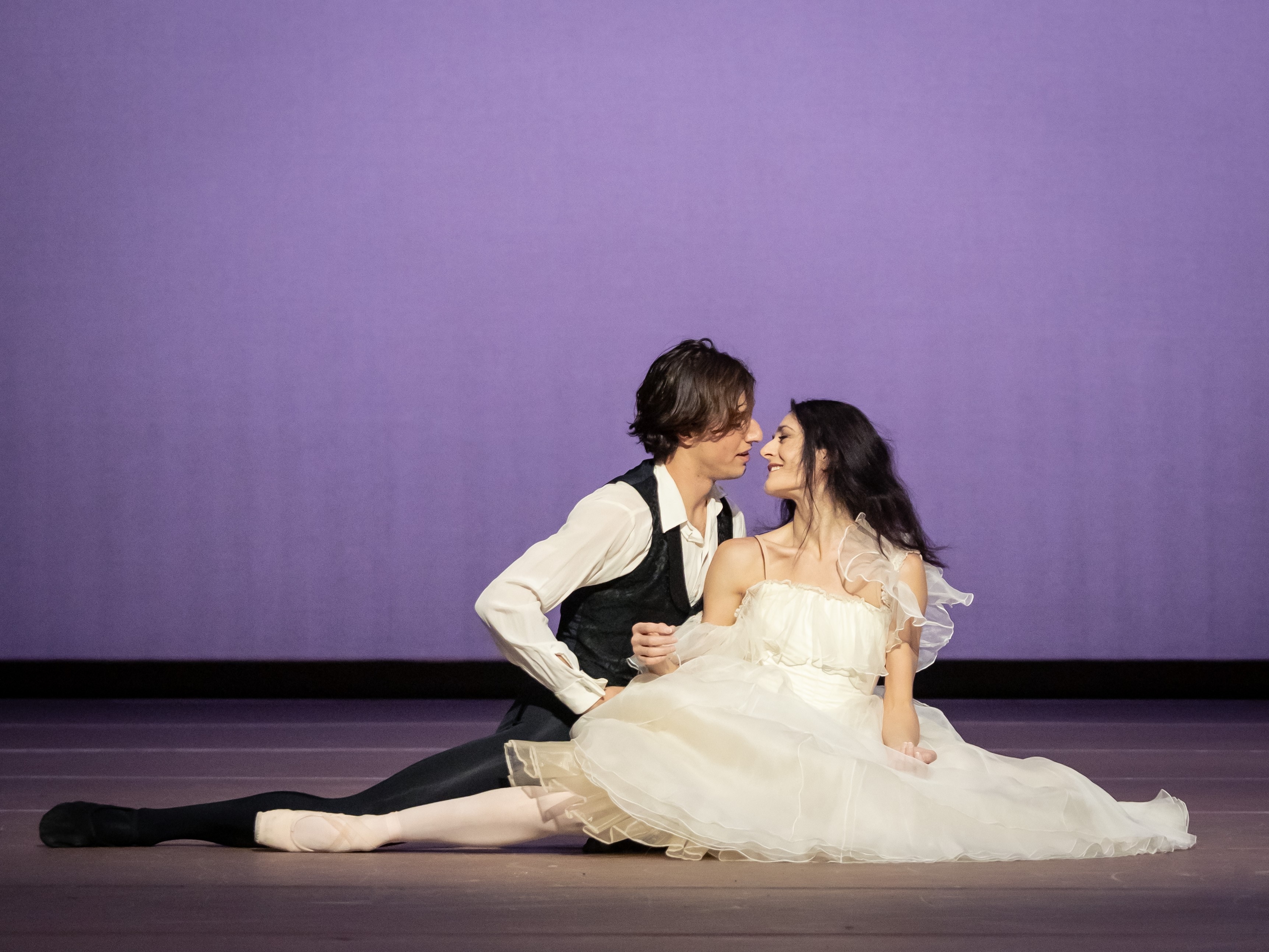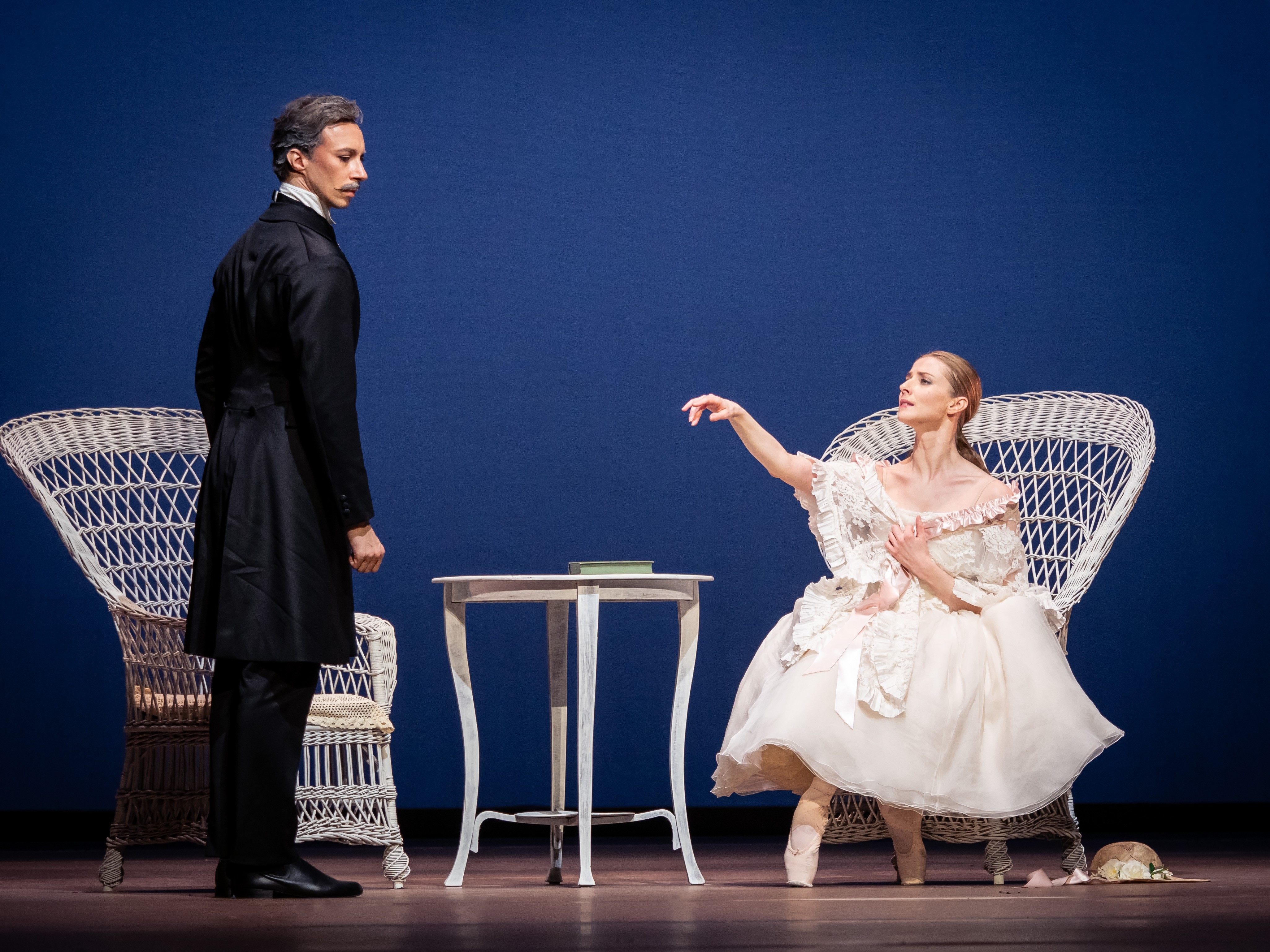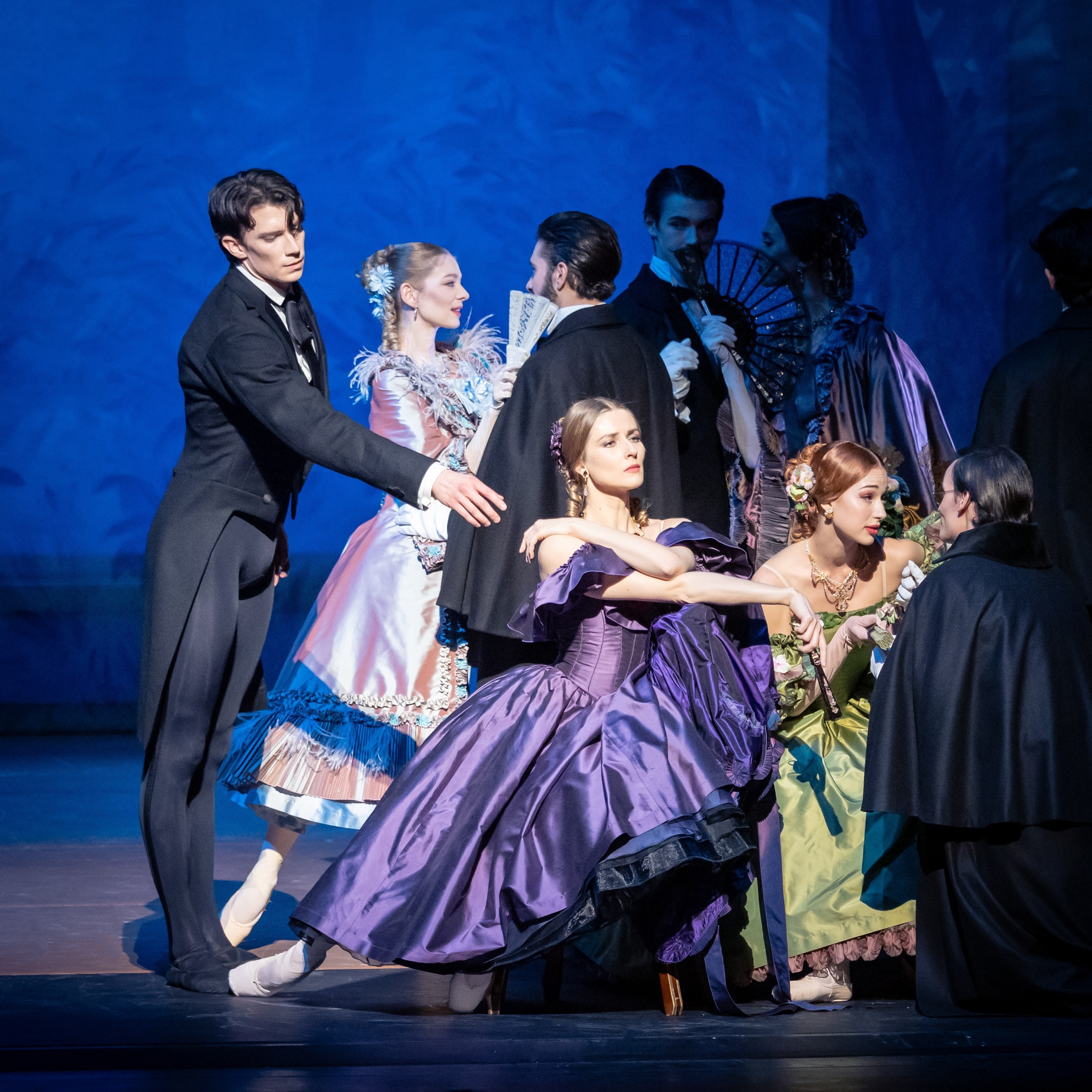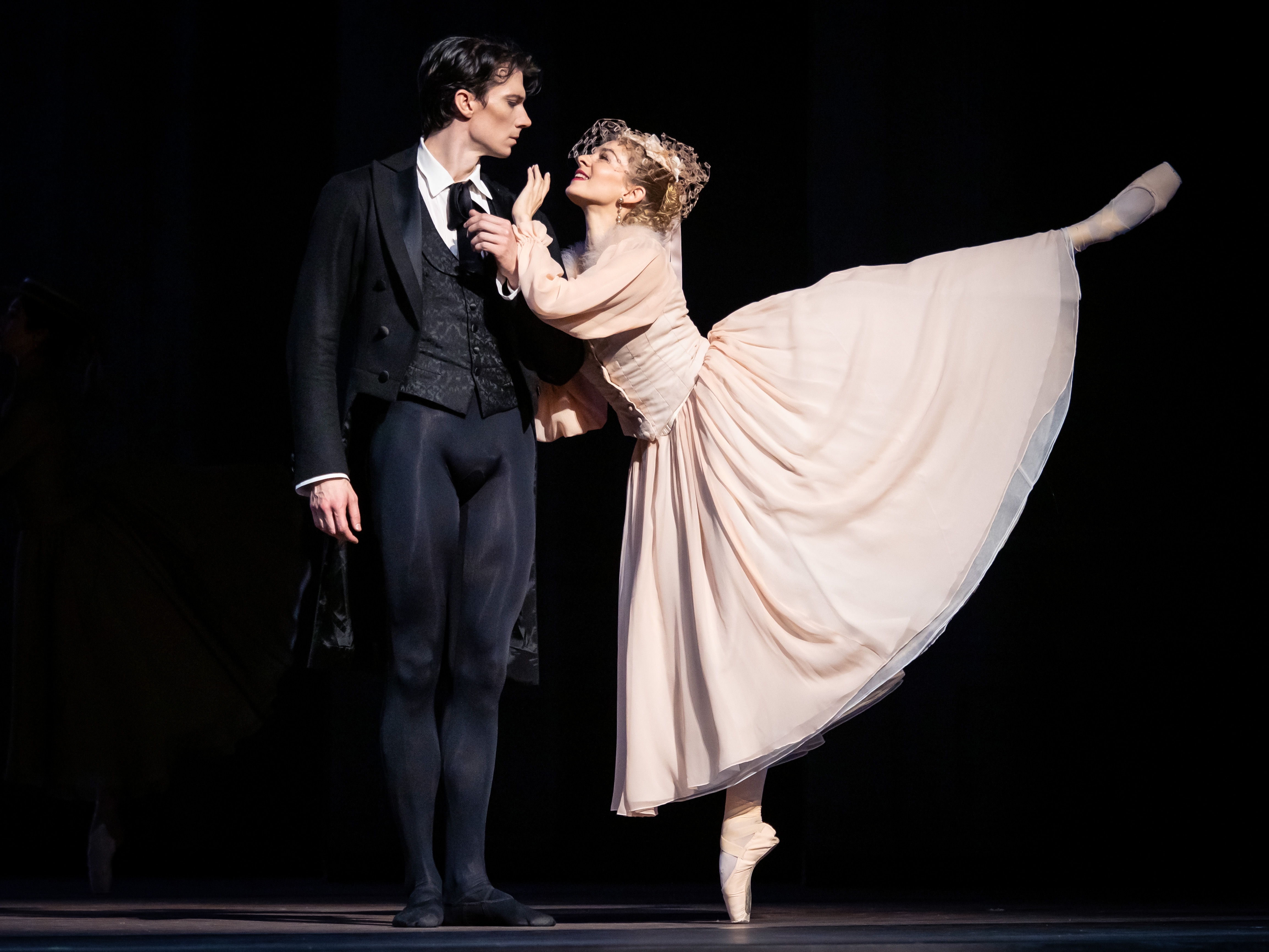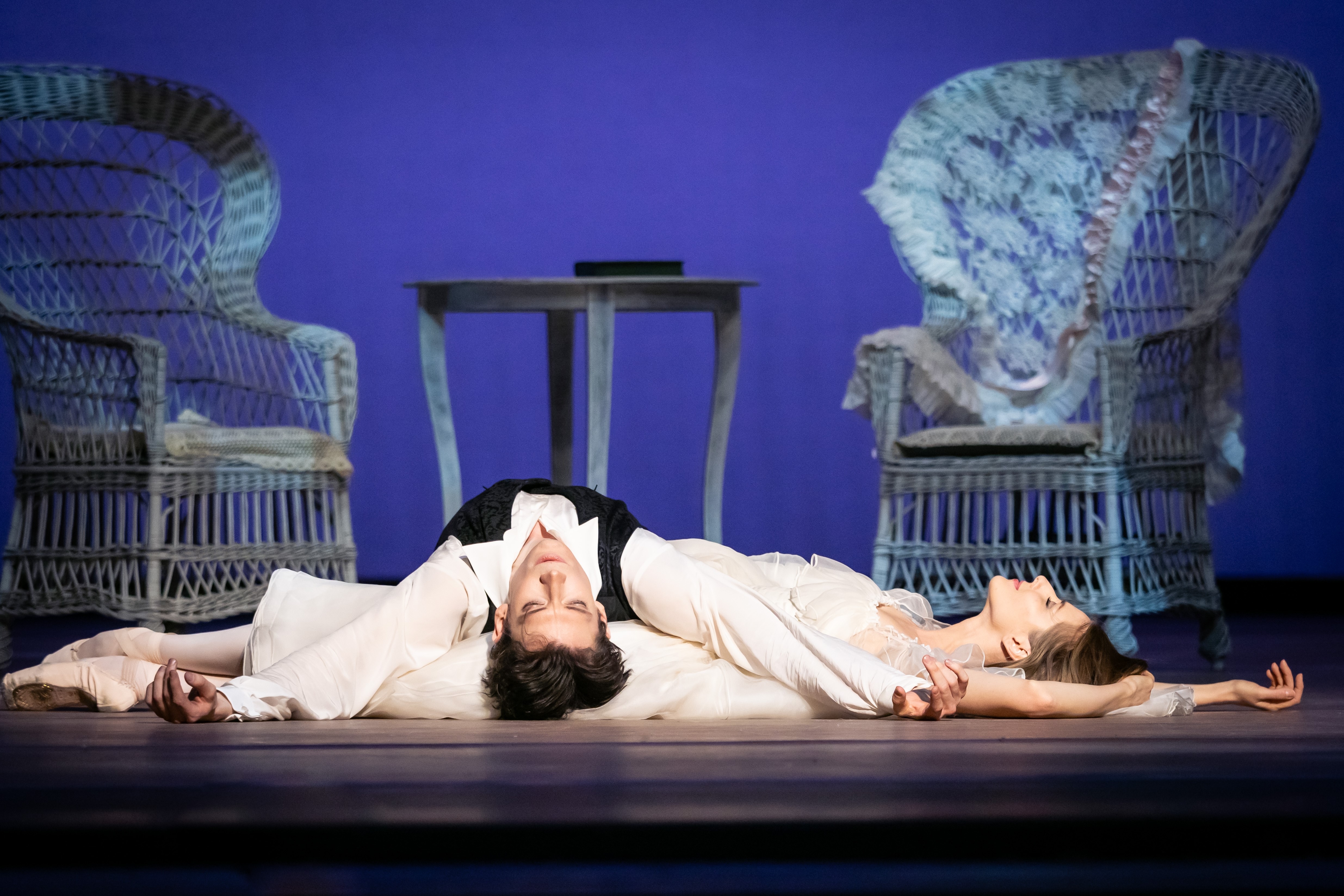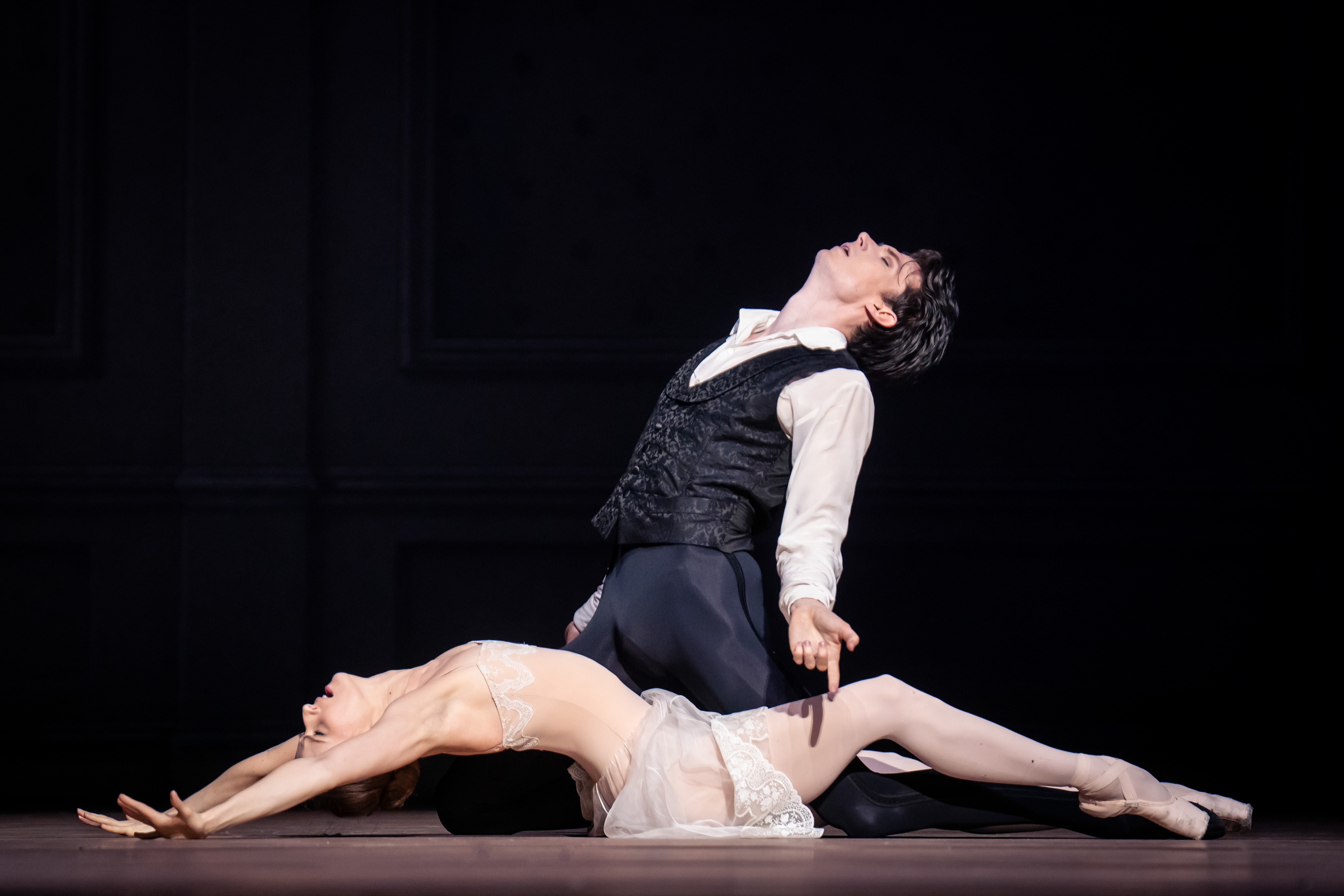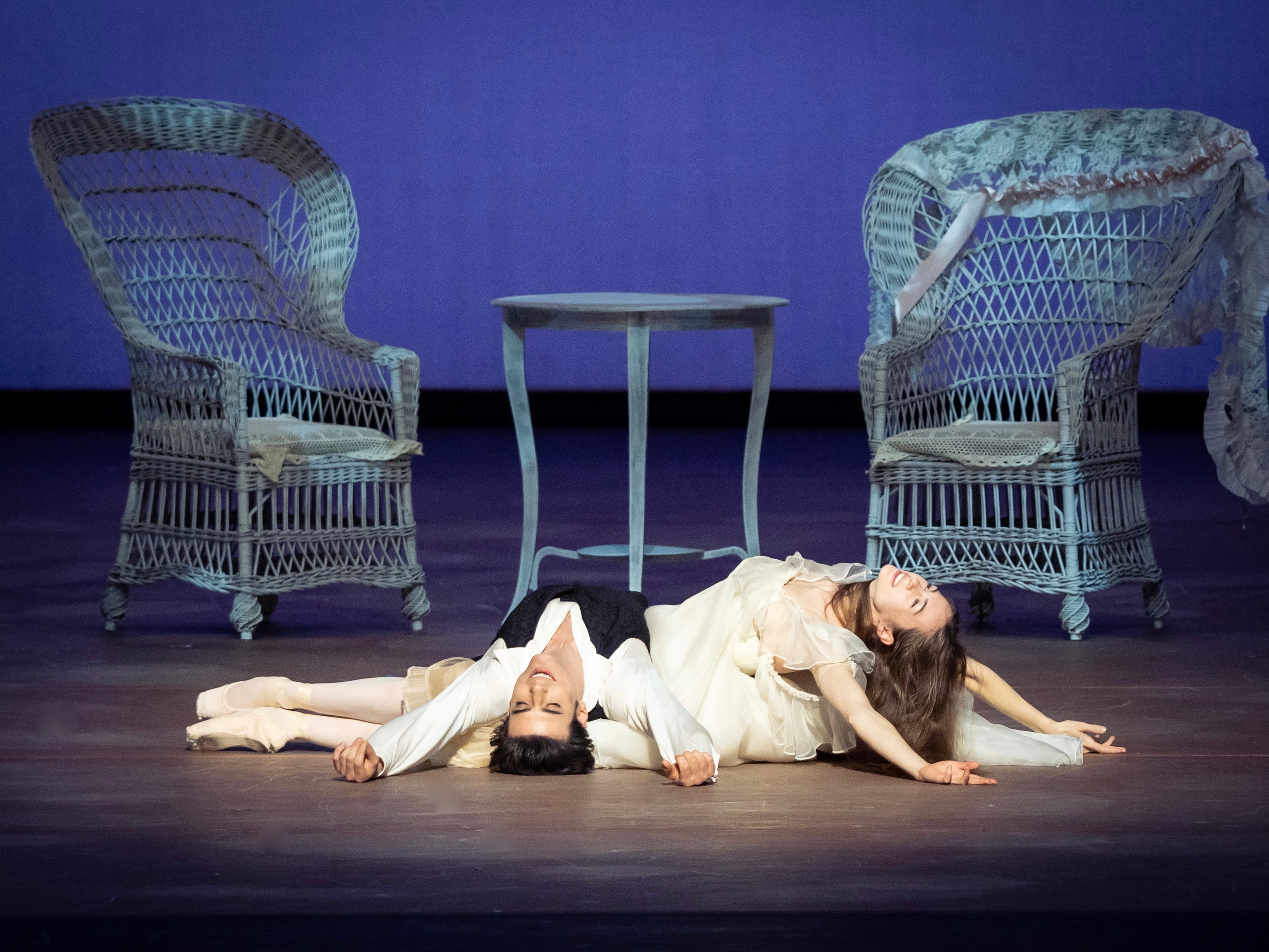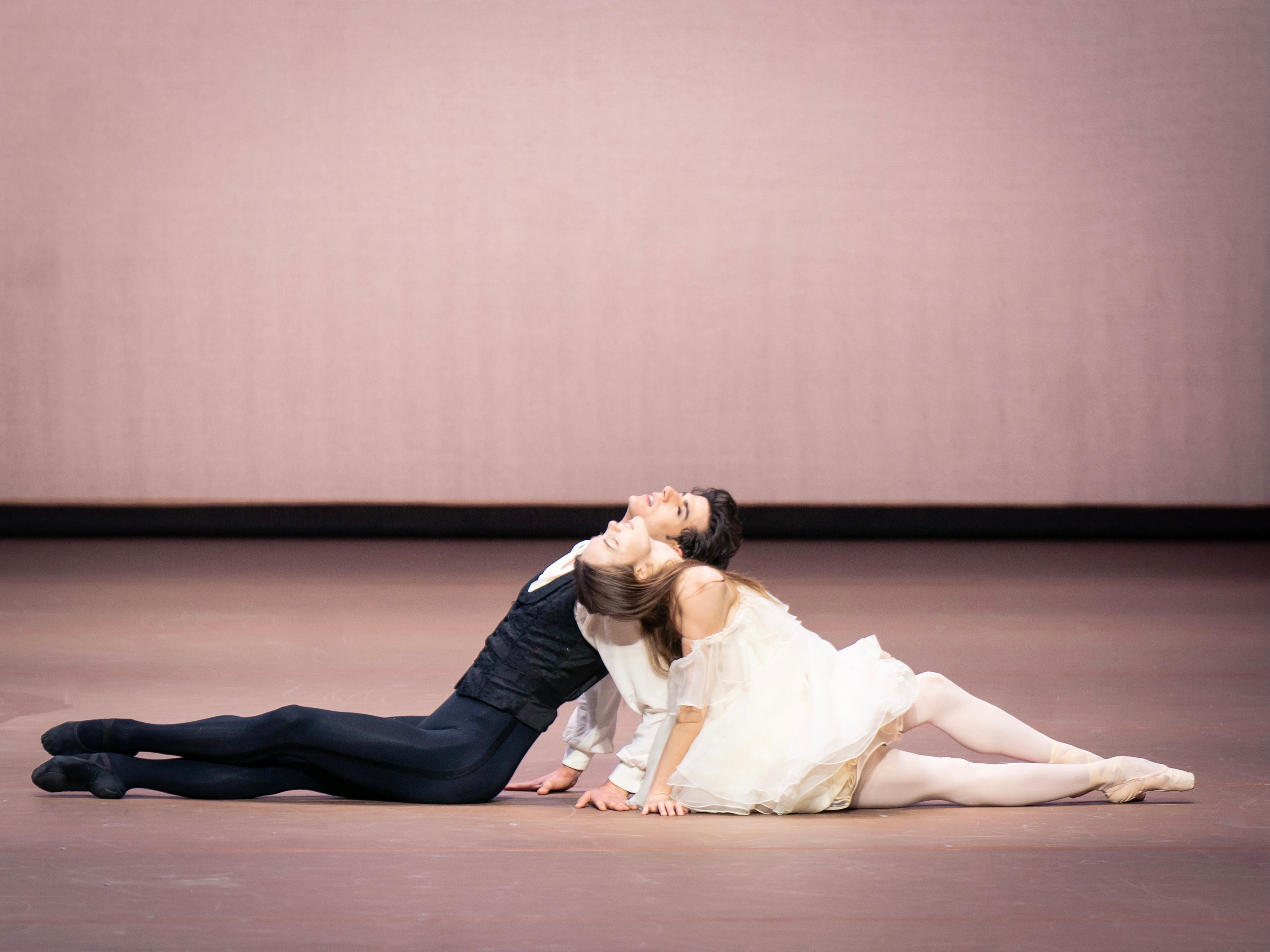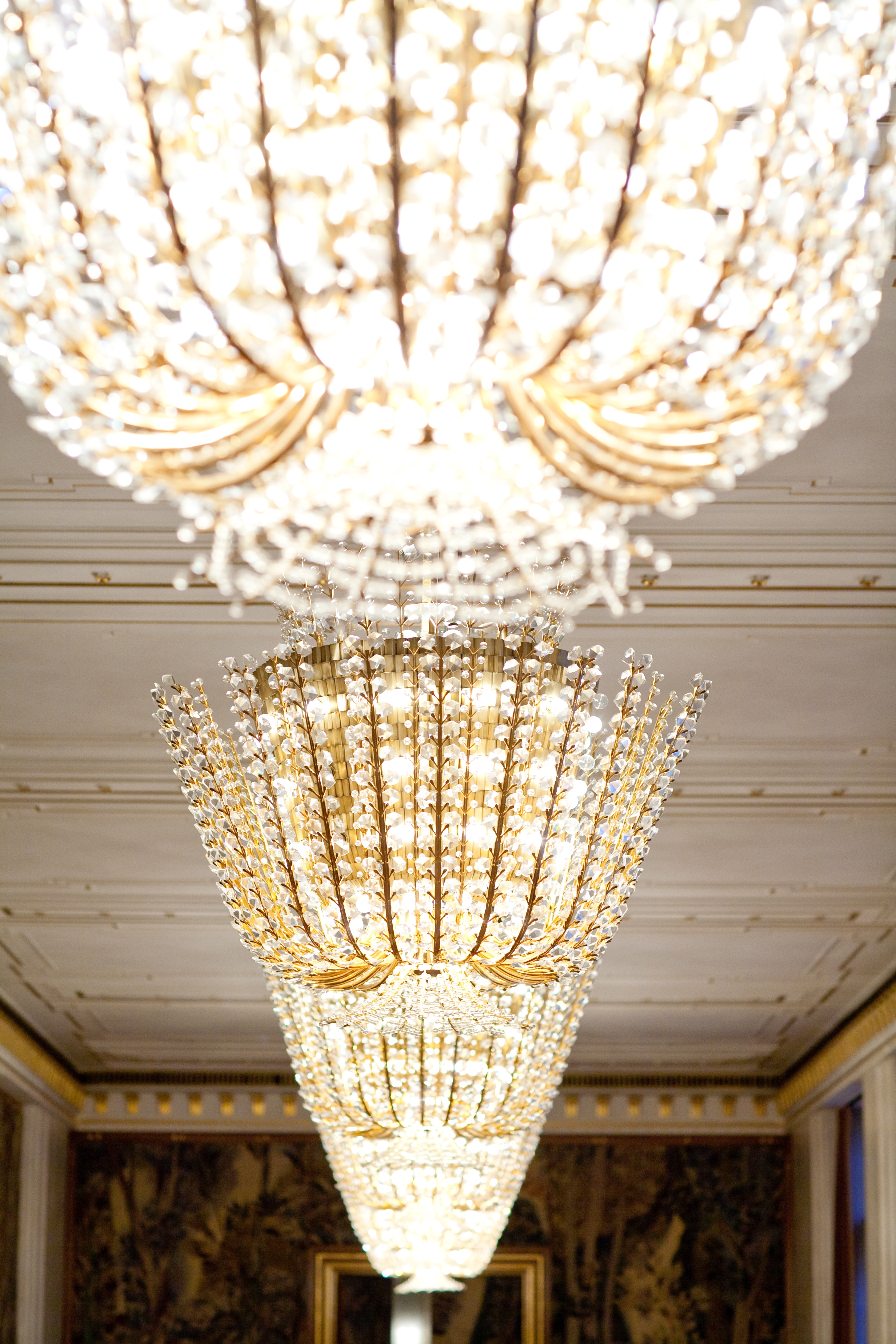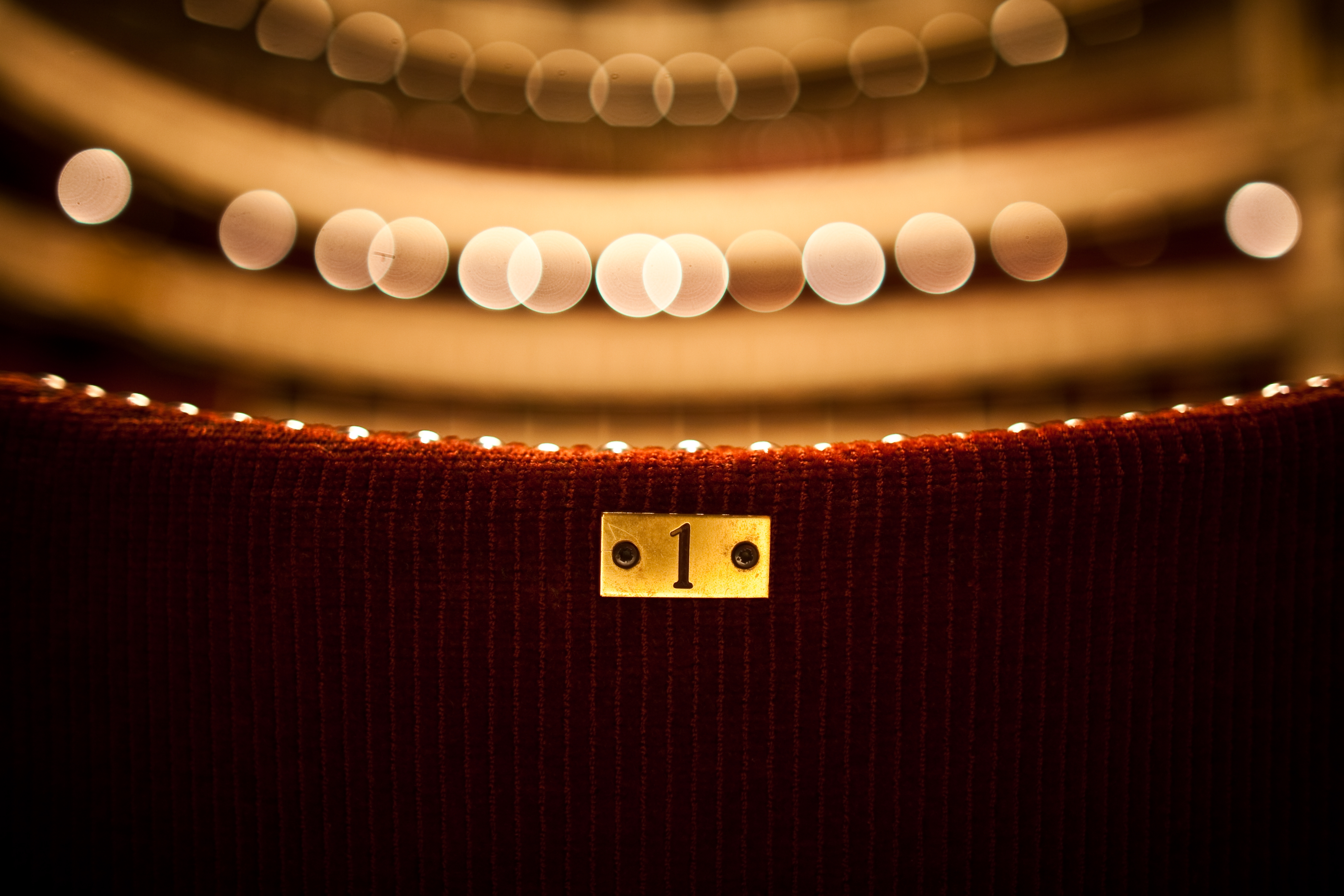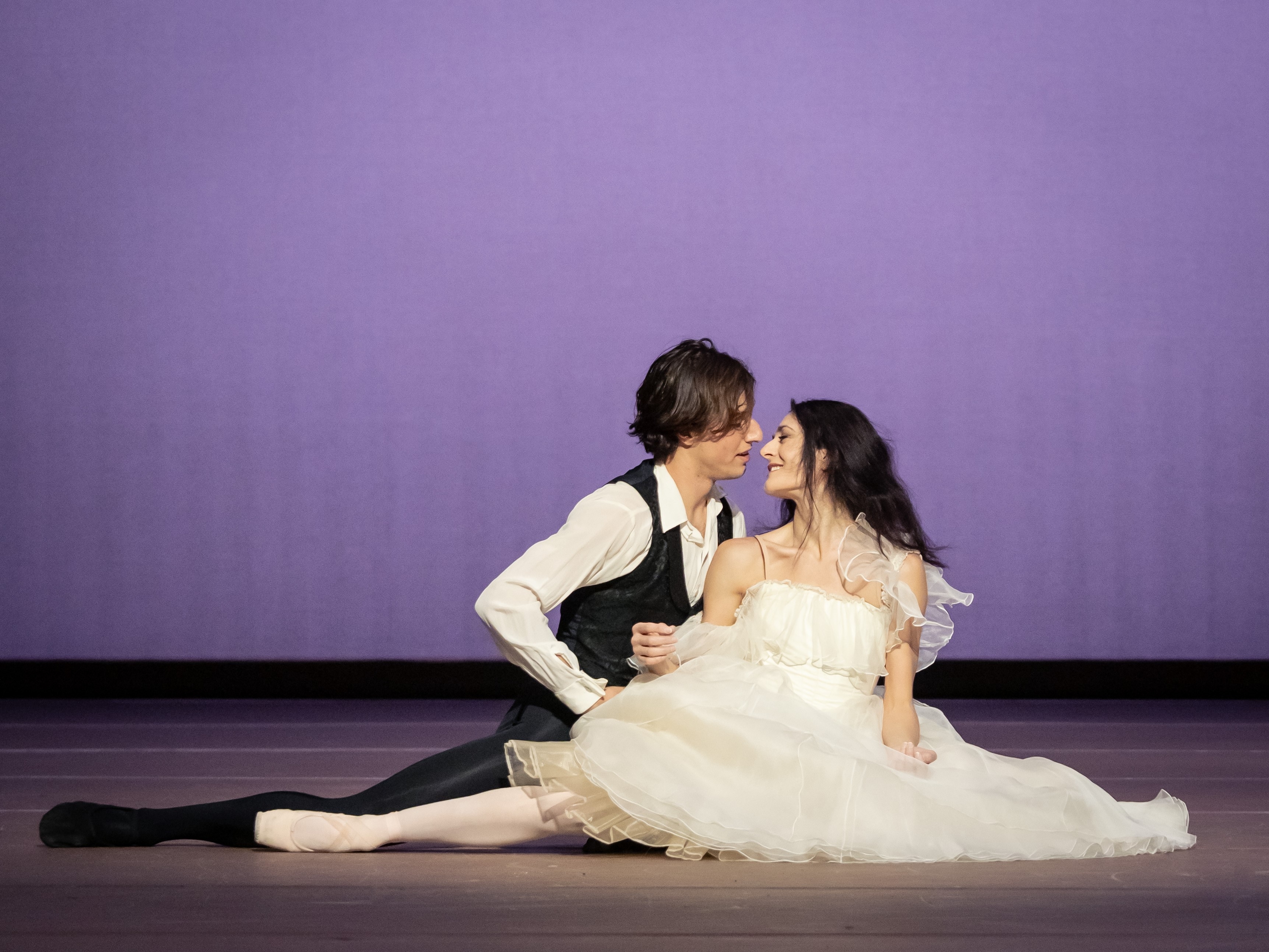
Short Summary
An estate is being auctioned off. These are what remains of the glittering possessions of one of the most glamorous women in 19th century Paris: the courtesan Marguerite Gautier. Armand Duval is among those in attendance.
As the business of the auction continues before a crowd of curious onlookers, he is overcome with memories, for he was the man with whom Marguerite discovered true love. They spent one long summer together, enjoying a life of bliss in the country, far away from the Parisian demi-monde. However, Armand’s family honour was at risk. And without knowing that his father was forcing Marguerite to do so, he had to watch as his lover returned to her old life – and that ultimately ruined everything.
Die
Kameliendame
Storyline
Marguerite Gautier, once the most desirable courtesan in Paris, has died. The com- plete furnishing of her luxurious apartment are to be disposed of by auction. Carrying Marguerite’s diary, Nanina, her loyal servant, bids the place farewell. Among those inspecting the items is Monsieur Duval, whose son Armand rushes in frantically. Overcome by memories, he collapses.
As Monsieur Duval comforts him, Armand tells his story.
It begins in the Théâtre-des-Variétés, during a performance of the ballet Manon Lescaut, in which the famous rococo courtesan deceives Des Grieux with numerous admirers. In the audience, Marguerite Gautier is disgusted by Manon’s frivolous infidelity. Armand Duval, who has long admired Marguerite, is introduced to her by Gaston Rieux. Marguerite makes fun of Armand’s awkward sincerity. As he follows the ballet, Armand fears that his own future may reflect Des Grieux’s sorrowful fate. After the performance Marguerite invites Armand to her apartment along with his friend Gaston, the courtesan Prudence and her own escort, the wearisome young Count N. Annoyed by the jealous Count, Marguerite suffers a coughing attack. Armand follows her to her bedroom, offers h is assistance, then confesses h is love. Marguerite is moved by h is sincere passion. However, aware of her fatal illness and needing the comfort of luxury, she insists that their affair must remain secret.
While Marguerite continues to lead her hectic life, hastening from one ball to another, from one admirer to the next, from an old Duke to the young Count, Armand is always there – waiting. When Marguerite departs for the idyllic country house the Duke had put at her disposal – he follows her.
Marguerite’s summer straw hat promps Armand to resume his story ...
Surrounded by reveling friends and ardent admirers, Marguerite continues her tur- bulent life in the country.
With the inevitable confrontation between Armand and the Duke, Marguerite’s mo- ment of decision arrives. She publicly acknowledges her love for Armand. Armand and Marguerite are alone at last.
Armand’s father recalls with regret his part in the story.
Ashamed that his son is living with a prostitute, Monsieur Duval visits Marguerite in the country. He insists that her relationship with his son will ruin Armand. Shocked, Marguerite protests, but the image of Manon and her admirers appear in memory, a mirror image of her own past, confirming the truth of Monsieur Duval’s accusations. He demands that she leaves Armand. Out of deep and sincere love, Marguerite complies.
Armand tells his father how he found the house deserted.
He waits in vain until Nanina brings him a letter saying that Marguerite has returned to her former life. Unbelieving, Armand runs to Paris, finding Marguerite in the arms of the Duke.
Armand explains to his father how they met later on the Champs-Élysées.
Marguerite is accompanied by the beautiful young courtesan Olympia. To have his revenge on the woman who had so deeply wounded him, Armand flirts with and seduces Olympia.
Deathly ill, Marguerite visits Armand, begging him not to hurt her by flaunting his affair with Olympia. Their passion ignites once more. Falling asleep, a vision of her alter ego Manon beckons Marguerite back to her former life. Waking, she remembers her promise to his father and silently leaves Armand for the second time.
At a grand ball, Armand publicly humiliates Marguerite by handing her money as payment for past services. Marguerite collapses.
Armand has reached the end of his story. He will never see Marguerite again. Deeply moved, his father leaves, as Nanina returns and gives Armand Marguerite’s diary. Read- ing, Armand seems to accompany Marguerite on her last visit to the theatre.
Again she views a scene from the ballet Manon Lescaut. This time it is one in which Manon, impoverished like herself, dies in the arms of her faithful lover Des Grieux.
Ill and despairing, Marguerite leaves the theatre, but the characters from the ballet follow her into a feverish dream. As the phantom lovers blend with her own memories, her identification with Manon seems complete. Deserted and longing to see Armand again, Marguerite confides her last thoughts to the diary, which she gives to Nanina for Armand. Marguerite dies alone.
Armand silently closes her diary.
The choreographer John Neumeier reveals Armand Duval’s passionate relationship with Marguerite Gautier retrospectively. The couple meet for the first time in a play-within-a-play, but Marguerite also sees her own life disturbingly reflected in the ancient love story that is presented in ballet form: the tragedy of Manon Lescaut and Chevalier Des Grieux. Neumeier skilfully employs a filmic dramaturgy, overlaying lightly drawn »exterior« scenes of Parisian society with »interiors« that focus on the emotional states of his characters, in which his dances reveal every possible psychological nuance: full of elegance and carefree joy, immersed in passion and lust for life, erupting into existential drama and affecting the audience deeply with fragility in the face of death.
In Frédéric Chopin, Neumeier found the ideal musical partner to bring both great virtuosity and a melancholy sense of loss to his depiction of the superficiality of Paris’s high society and of human passion. The largo from Chopin’s B minor sonata forms the recurrent leitmotif in a score of piano works (including both concertos, together with other pieces for piano and orchestra) for which two pianists join forces in a Chopin marathon whose demands go far beyond a conventional recital.
When Alexandre Dumas fils published his semi-autobiographical novel La dame aux camélias in 1848, he not only achieved his greatest success, but also created one of the stage’s most moving stories. Giuseppe Verdi would premiere his opera based on the novel, La traviata, at Venice’s Teatro La Fenice five years later, actresses including Sarah Bernhardt, Eleonora Duse and Käthe Dorsch went on to triumph in the stage play that Dumas adapted himself, and Greta Garbo would play Marguerite on film. Among the versions for the dance stage, Frederick Ashton’s ballet Marguerite and Armand deserves special mention, in 1963 created for two outstanding performers: Margot Fonteyn and Rudolf Nureyev. Fifteen years later, Stuttgart Ballet presented an equally spectacular cast in John Neumeier’s Lady of the Camellias: a full-length narrative ballet created for Marcia Haydée, Egon Madsen, Brigit Keil, Richard Cragun, Reid Anderson and many others. To this day it remains not only one of his most moving works, but – with its dramatic construction, the clarity and intensity of its characterisation, and the subtle images and splendid costumes of Jürgen Rose’s designs which sympathetically evoke the flair of 19th century Paris – it is a masterpiece of recent dance history.
